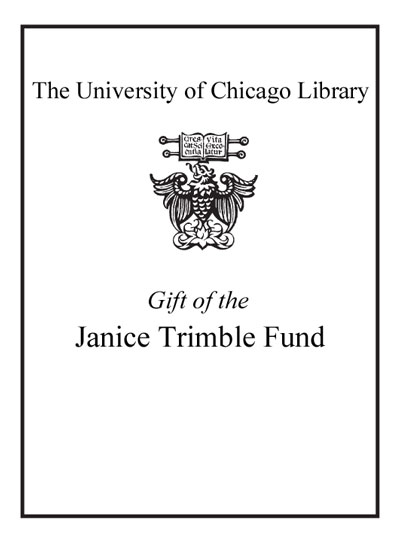Review by Booklist Review
From the true story of a WWII soldier who kept up the fight until 1974, legendary filmmaker Herzog distills a brooding, poetic novella. Dispatched to Lubang Island in the Philippines, Japanese intelligence officer Hiroo Onoda took to the jungle when U.S. forces arrived in 1945. Committed to orders to hold the island, he and three comrades stayed there for nearly three decades, eating stolen rice and carrying out minor guerrilla attacks. Onoda's final 18 months, before he was discovered by an eccentric Japanese yeti-seeker, were spent alone. Journalistic accounts and a documentary film emphasize Onoda's extreme endurance and unmatched delusion. But Herzog, ever in pursuit of deeper truths, sees in Onoda's predicament an all-too-ordinary tendency to subordinate facts to master narratives. Leaflets announcing the Japanese surrender are dismissed as propaganda, and technological advances--jet aircraft, tubeless radios--confirm rather than dispel Onoda's belief that the war continues. His doubts, when they come, are about perception itself. "Is it possible that I am dreaming this war?" wonders Onoda, in a brief moment of rainy-season contemplation. Perhaps we prefer the jungle, Herzog suggests, if the alternative is facing reality.
From Booklist, Copyright (c) American Library Association. Used with permission.
Review by Publisher's Weekly Review
Filmmaker Herzog (the diary Of Walking in Ice) draws on the true story of a Japanese officer who patrolled the Filipino jungle for nearly three decades after WWII, unaware the war had ended, in his fascinating debut novel. As the Imperial Army prepares to withdraw from Lubang Island in December 1944, Lt. Hiroo Onoda is ordered to remain behind and defend the territory by guerilla tactics. But after fellow officers refuse to assist him in dynamiting a port, Allied forces capture the island and decimate the remaining troops. Onoda perseveres in his mission, retreating to the mountains in the company of a young corporal. Night after night they remain on the move, preserving their bullets with coconut oil and battling deprivation by killing the odd buffalo or raiding small villages. Later, Onoda mistakes American planes en route to Korea, and later Vietnam, as proof that his war rages on. In spare prose, Herzog conveys Onoda's strange relationship to the passage of time: "After all his millions of steps," the lieutenant "understood that there was--there could be--no such thing as the present." Onoda's reemergence into a changed world in 1975 adds a captivating layer, though it's all too brief and lightly sketched. Still, Onoda shares with the director's filmic protagonists a fierce will and singular perspective. This will whet the reader's appetite for a film version. (June)
(c) Copyright PWxyz, LLC. All rights reserved
Review by Library Journal Review
DEBUT Herzog is internationally acclaimed as a maker of films peopled by obsessive characters struggling in wild, uncontrollable settings (Fitzcarraldo comes to mind). Herzog's first novel is no different. Lt. Hiroo Onoda, an obedient Japanese soldier, survives in the Philippine jungle as he continues to fight a war that ended 29 years ago. Based on a true story, this novel chronicles Onoda's almost mindlessly steadfast adherence to orders that kept him relentlessly fighting World War II long after there was no one and no reason to fight. Onoda's experience, owing to its sheer length, could have lent itself to the epic treatment Norman Mailer lavished on his World War II Philippines experience, The Naked and the Dead. That sort of treatment would have shifted focus from Onoda's single-mindedness to his war with the environment. Through spare language and minimal detail that recall Herzog's screenwriting technique, together with great leaps through time, the novel spans the full 29 years of Onoda's remarkable story while keeping the focus on him. VERDICT A brief but powerful and noteworthy addition to the résumé of a master storyteller; fans of Herzog's films will see the filmmaker's cinematic fingerprints all over this absurdist, if absorbing, story.--Michael F. Russo
(c) Copyright Library Journals LLC, a wholly owned subsidiary of Media Source, Inc. No redistribution permitted.
Review by Kirkus Book Review
Stunning tale of obsession unto madness by a master of that narrow but fruitful genre. Recall director Herzog's film Aguirre, The Wrath of God (1972), and you'll have a key to this story, whose details he calls "factually correct"--mostly. In Tokyo to stage a production of Chushingura in 1997, Herzog declines an opportunity to speak with the emperor and instead asks to see Hiroo Onoda, a Japanese commando who hid on a Philippine island from 1944 until 1974. Herzog tells Onoda's tale from the beginning, when the psychologically remote sentinel had a few companions. One was captured early on and two were killed, all well after the war had ended. Onoda, though, was convinced that the war was ongoing since year after year vast armadas of American ships and airplanes came by--though bound for Korea and then, a decade later, Vietnam. "Our tasks are to remain invisible, to deceive the enemy, to be ready to do seemingly dishonorable things while keeping safe in our hearts the warrior's honor," Onoda exhorts, sure that the leaflets and broadcasts directing him and his troops to surrender are all "just a trick to lure them out of their jungle fastness." Three decades after the war ended, a young Japanese student named Suzuki--whose goal after having ferreted out Onoda is to find a yeti and then a giant panda--strikes a deal: If he returns with the commander who had ordered Onoda to remain on Lubang, then Onoda will surrender. What happens next has the bittersweet dimension that is another Herzog trademark, marked by graceful prose: Onoda becomes a rancher in Brazil, and among the cows and away from people, "he knows he is where he is." Herzog fans will hope for a film to come. Meanwhile, this evocation of loyalty to a lost cause serves beautifully. Copyright (c) Kirkus Reviews, used with permission.
Copyright (c) Kirkus Reviews, used with permission.
Review by Booklist Review
Review by Publisher's Weekly Review
Review by Library Journal Review
Review by Kirkus Book Review

